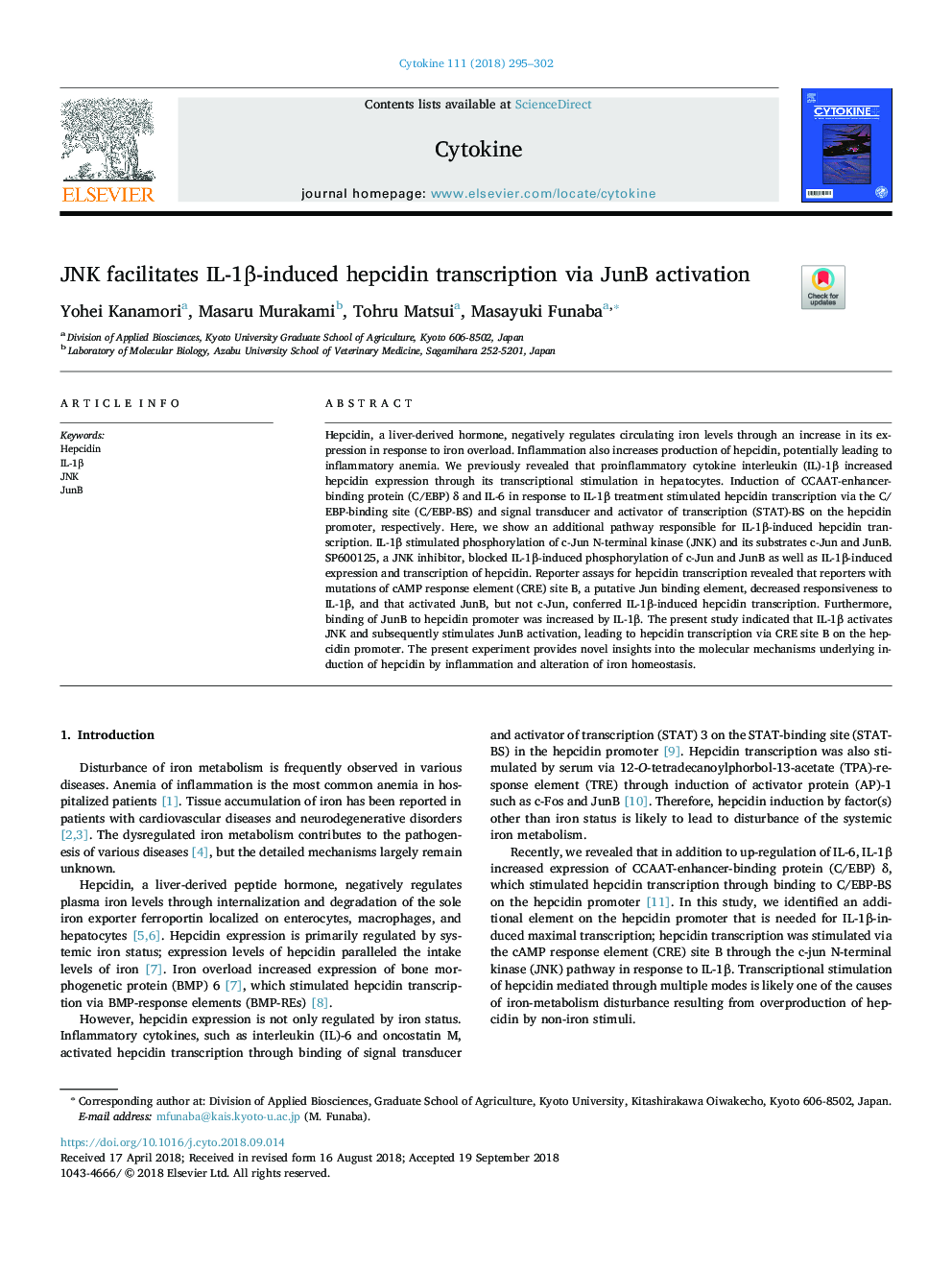| Article ID | Journal | Published Year | Pages | File Type |
|---|---|---|---|---|
| 11033816 | Cytokine | 2018 | 8 Pages |
Abstract
Hepcidin, a liver-derived hormone, negatively regulates circulating iron levels through an increase in its expression in response to iron overload. Inflammation also increases production of hepcidin, potentially leading to inflammatory anemia. We previously revealed that proinflammatory cytokine interleukin (IL)-1β increased hepcidin expression through its transcriptional stimulation in hepatocytes. Induction of CCAAT-enhancer-binding protein (C/EBP) δ and IL-6 in response to IL-1β treatment stimulated hepcidin transcription via the C/EBP-binding site (C/EBP-BS) and signal transducer and activator of transcription (STAT)-BS on the hepcidin promoter, respectively. Here, we show an additional pathway responsible for IL-1β-induced hepcidin transcription. IL-1β stimulated phosphorylation of c-Jun N-terminal kinase (JNK) and its substrates c-Jun and JunB. SP600125, a JNK inhibitor, blocked IL-1β-induced phosphorylation of c-Jun and JunB as well as IL-1β-induced expression and transcription of hepcidin. Reporter assays for hepcidin transcription revealed that reporters with mutations of cAMP response element (CRE) site B, a putative Jun binding element, decreased responsiveness to IL-1β, and that activated JunB, but not c-Jun, conferred IL-1β-induced hepcidin transcription. Furthermore, binding of JunB to hepcidin promoter was increased by IL-1β. The present study indicated that IL-1β activates JNK and subsequently stimulates JunB activation, leading to hepcidin transcription via CRE site B on the hepcidin promoter. The present experiment provides novel insights into the molecular mechanisms underlying induction of hepcidin by inflammation and alteration of iron homeostasis.
Related Topics
Life Sciences
Biochemistry, Genetics and Molecular Biology
Endocrinology
Authors
Yohei Kanamori, Masaru Murakami, Tohru Matsui, Masayuki Funaba,
